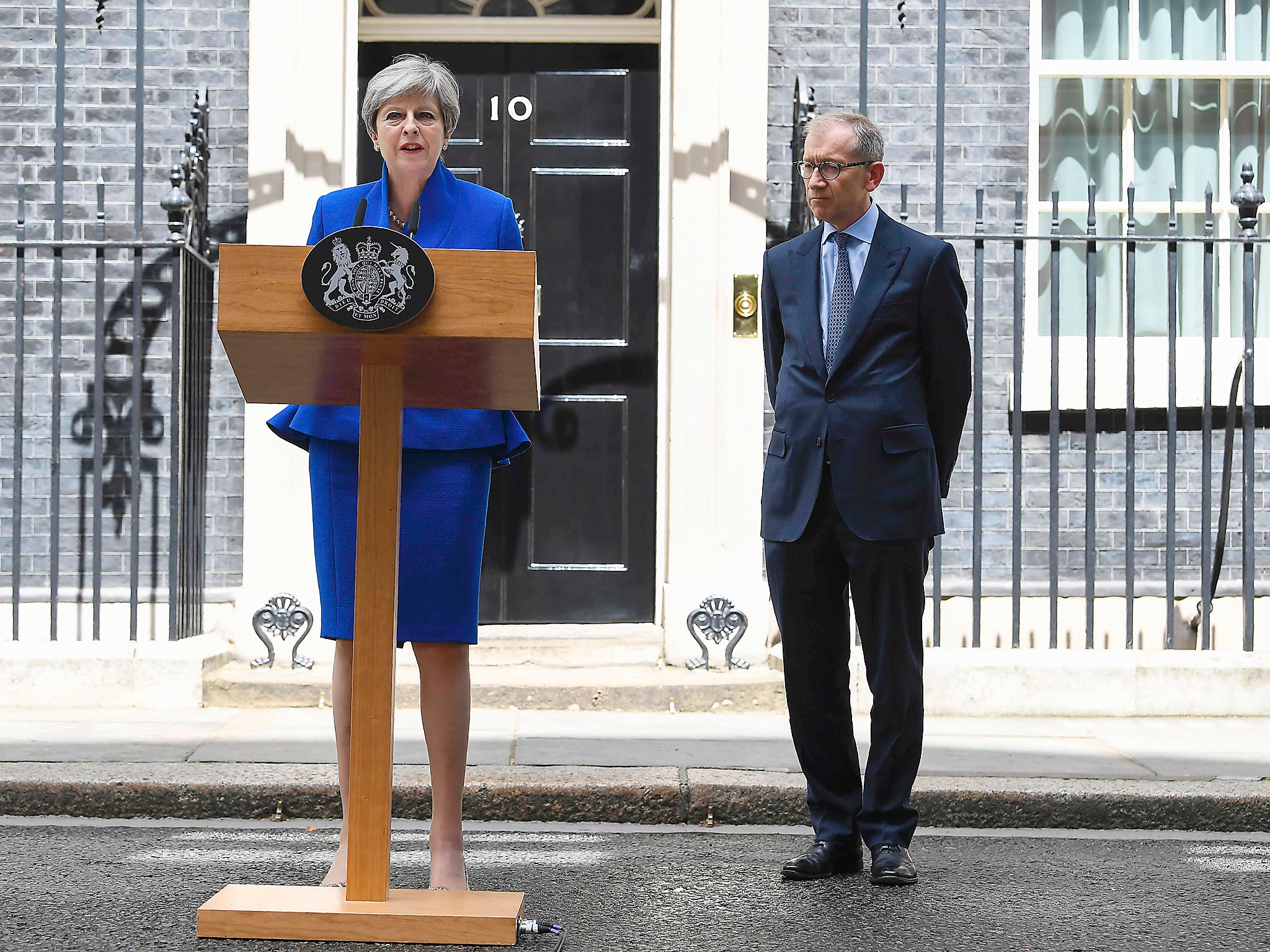Theresa May failed to gain a majority because she grossly misunderstood the 'will of the people'
What matters under the first past the post electoral system is not a party’s absolute share of the vote, but its share of the vote relative to that of its opponents


Snap elections have a habit of rebounding on those who call them. In 1970, the then prime minister, Harold Wilson, tried to catch a sudden rising tide in his party’s support, only to crash to defeat. Facing crippling industrial action by the coal miners, his successor, Edward Heath, went to the country in February 1974 to ask, “Who governs?” – only to be told that it was not him.
Undeterred, and even though snap elections are now meant to be outlawed by the Fixed Terms Parliaments Act, on 18 April Theresa May changed her mind and decided to call a snap election. She said her ambition was to win a large overall majority, unaware perhaps of just how difficult it is to secure such a result these days. Marginal seats are relatively thin on the ground, while much of Scotland is in the hands of the SNP. After all, even the seven-point lead that David Cameron won two years ago only reaped him an overall majority of 12.
Well, history has repeated itself, again. Far from delivering a big overall majority, the Prime Minister’s snap election has resulted in the loss of her majority and has left herself dependent on the support of the DUP. Even her own future as Prime Minister may be in doubt.
In calling the election, Theresa May was seeking an endorsement of her plans for Brexit and of her personal abilities to pursue those plans successfully. Early on in the campaign, this was the issue that dominated. But then Brexit was overshadowed, first by the domestic agenda, including, above all, the Conservatives’ proposals for the funding of social care, and then by the tragic terrorist attacks in Manchester and London.
Yet Thursday’s results revealed that voters had not forgotten about Brexit. True, neither of the two parties that have a distinctive and divergent stance on Brexit – the Liberal Democrats and Ukip – enjoyed much fortune. The Ukip vote imploded from 13 per cent to two per cent, the party’s lowest tally since 2001. The Liberal Democrats merely flat-lined on the eight per cent to which they fell in 2015; even in the most pro-Remain seats, their vote only went up on average by one percentage point.
Rather, it was the choice made by some voters about whether to vote Conservative or Labour that appeared to reflect different views about the merits of Brexit.
Relatively speaking, Leave-inclined Britain largely kept faith with the Conservatives, not least because this was where there were the most Ukip voters for Theresa May to squeeze. On average, there was a one point swing to the Conservatives in seats where over 60 per cent of people voted Leave in 2016. In contrast, there was a seven point swing to Labour in seats where more than 55 per cent voted Remain.
These Remain-inclined seats also often had more than their fair share of young voters, who were a particular target for Jeremy Corbyn’s campaign. On average, there was as much as a five per cent swing to Labour in seats in England and Wales where more than one in 10 voters are aged between 18 and 24, whereas there was only a 2.5 per cent swing where fewer than seven per cent of the population are younger voters. Interestingly, turnout was also up more in seats with most young voters, too.
This coalition of younger Remain-inclined voters, many of them university-educated professionals, proved more numerous than the coalition of Leave voters assembled by Theresa May, and especially so in London where there was no less than a six per cent swing to Labour, well above the Britain-wide average of two points. In tuning into the aspirations and feelings of Leave voters, Theresa May has, perhaps, paid too little attention to the wishes of the 48 per cent who voted to Remain.
Some Conservative spokespeople seemed to feel aggrieved that their party had not won an overall majority, given that it had secured its highest share of the vote (just under 44 per cent) since Margaret Thatcher’s first election victory in 1979. But that was to ignore the fact that what matters under the first past the post electoral system is not a party’s absolute share of the vote, but its share of the vote relative to that of its opponents.
And the Conservatives’ principal opponents, Labour, managed to secure their highest share of the vote (41 per cent) since Tony Blair’s first success in 1997. As a result, the Conservative lead in votes was just 2.5 percentage points, well under the seven point lead that David Cameron secured in both 2010 and 2015, and, indeed, the lead the party enjoyed in any of its victories between 1979 and 1992.
That both the Conservatives and Labour performed well meant that, between them, those two parties dominated the preferences of voters to a greater extent than at any time since 1970, reversing what hitherto had appeared to be a growing fragmentation of British party politics. Mind you, despite the substantial reversal of fortunes for the SNP, whose share of the vote north of the border declined from 50 per cent to 37 per cent, politics north of the border is still a long way from having returned to the regular patterns of a two-party system. Mind you, the decline in SNP support, and the consequent loss of 21 seats, including a dozen to a revived Scottish Conservative and Unionist Party, may well temper the ardour of the SNP in pursuing its wish to hold a second independence referendum relatively soon.
Such a development would at least leave Theresa May with one less headache to deal with as she faces the difficult task of managing a hung parliament.
John Curtice is a professor of politics at Strathclyde University


Join our commenting forum
Join thought-provoking conversations, follow other Independent readers and see their replies